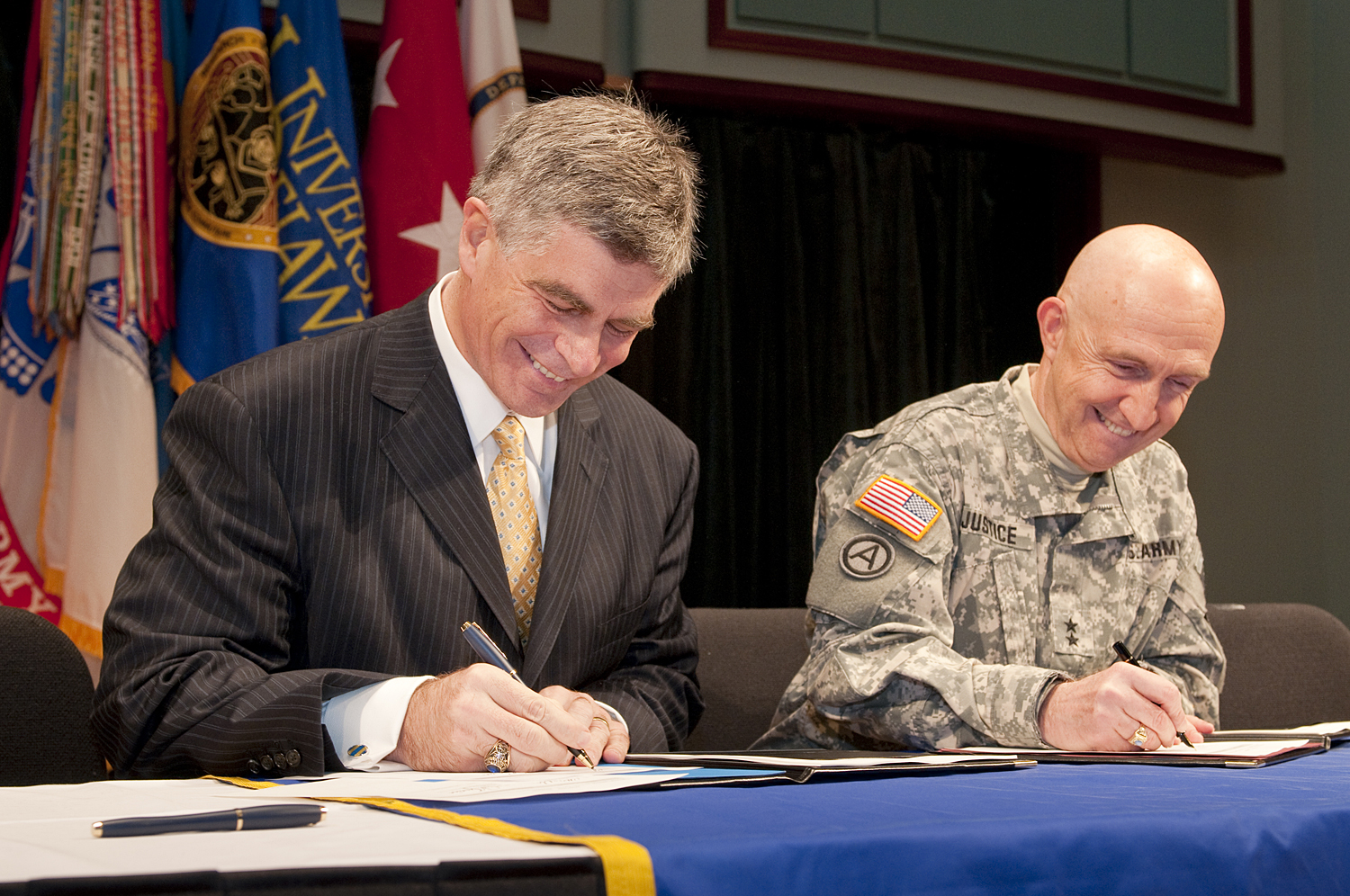BADER CRADA
The Bridging Advanced Developments for Exceptional Rehabilitation (BADER) Consortium cooperative research and development agreement (CRADA) was unique and complex in how many parties it included and how it enabled a diverse group of organizations to easily partner and focus on the conduct of research.
The Bridging Advanced Developments for Exceptional Rehabilitation (BADER) Consortium was a multi-institutional endeavor that worked in concert and partnership with military treatment facilities (MTFs) to conduct innovative, high-impact, clinically relevant research that further strengthened evidence-based orthopaedic rehabilitation care.
This was made possible through an omnibus Cooperative Research and Development Agreement, or CRADA, an innovative strategy that created standard operating procedure addressing intellectual property, publications, data sharing, subject inventions and licensing among all partners.
To accelerate the establishment of clinical research projects and research thrust partnerships, BADER Consortium leadership worked with the Medical Research Law Office of the Staff Judge Advocate, United States Army Medical Research and Material Command (USAMRMC) to develop the CRADA.
This model CRADA was a unique mechanism designed to cover all activities associated with a dynamic, nationwide clinical research consortium. It replaced the former practice of negotiating CRADA for each research-related activity.

